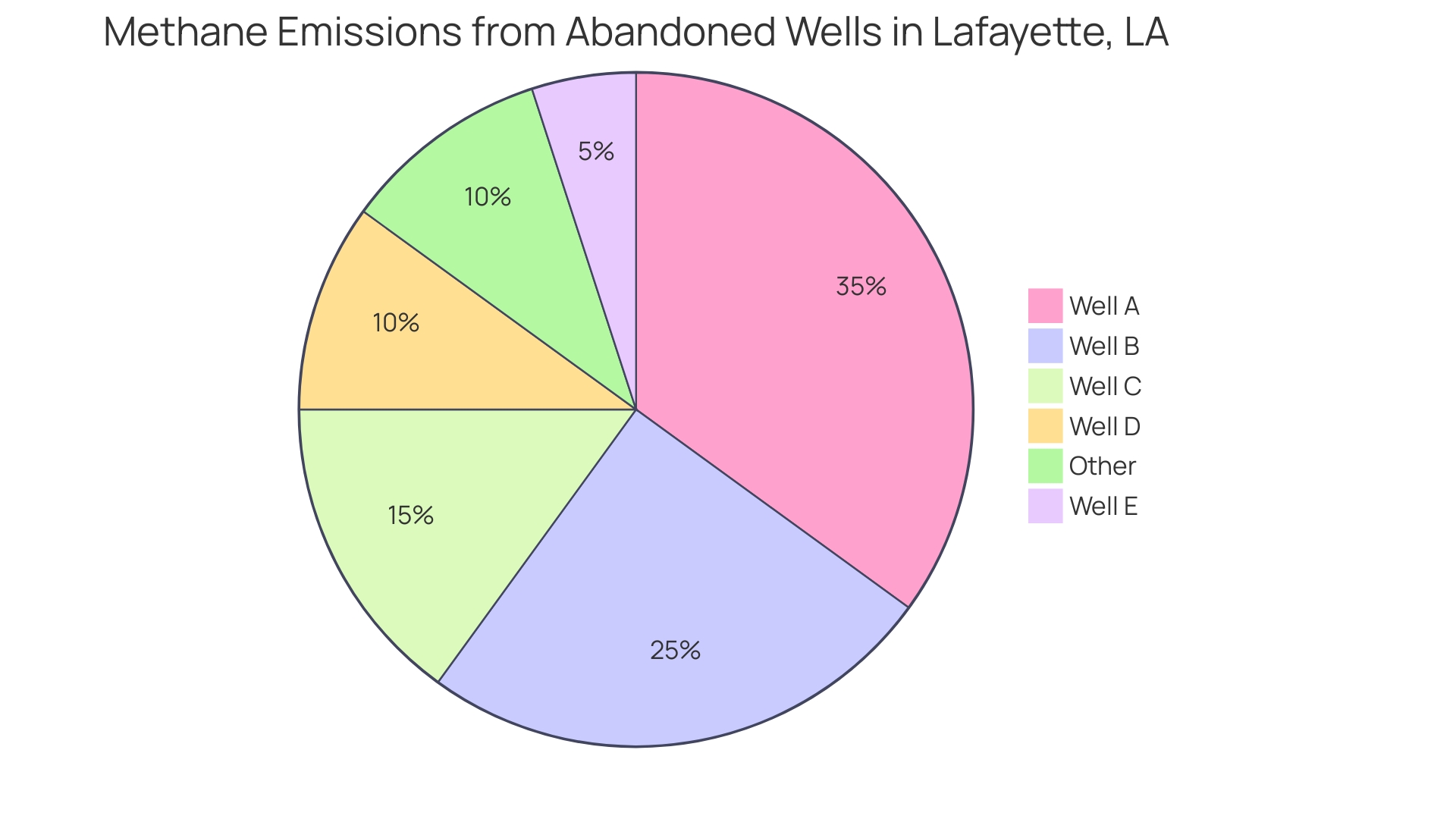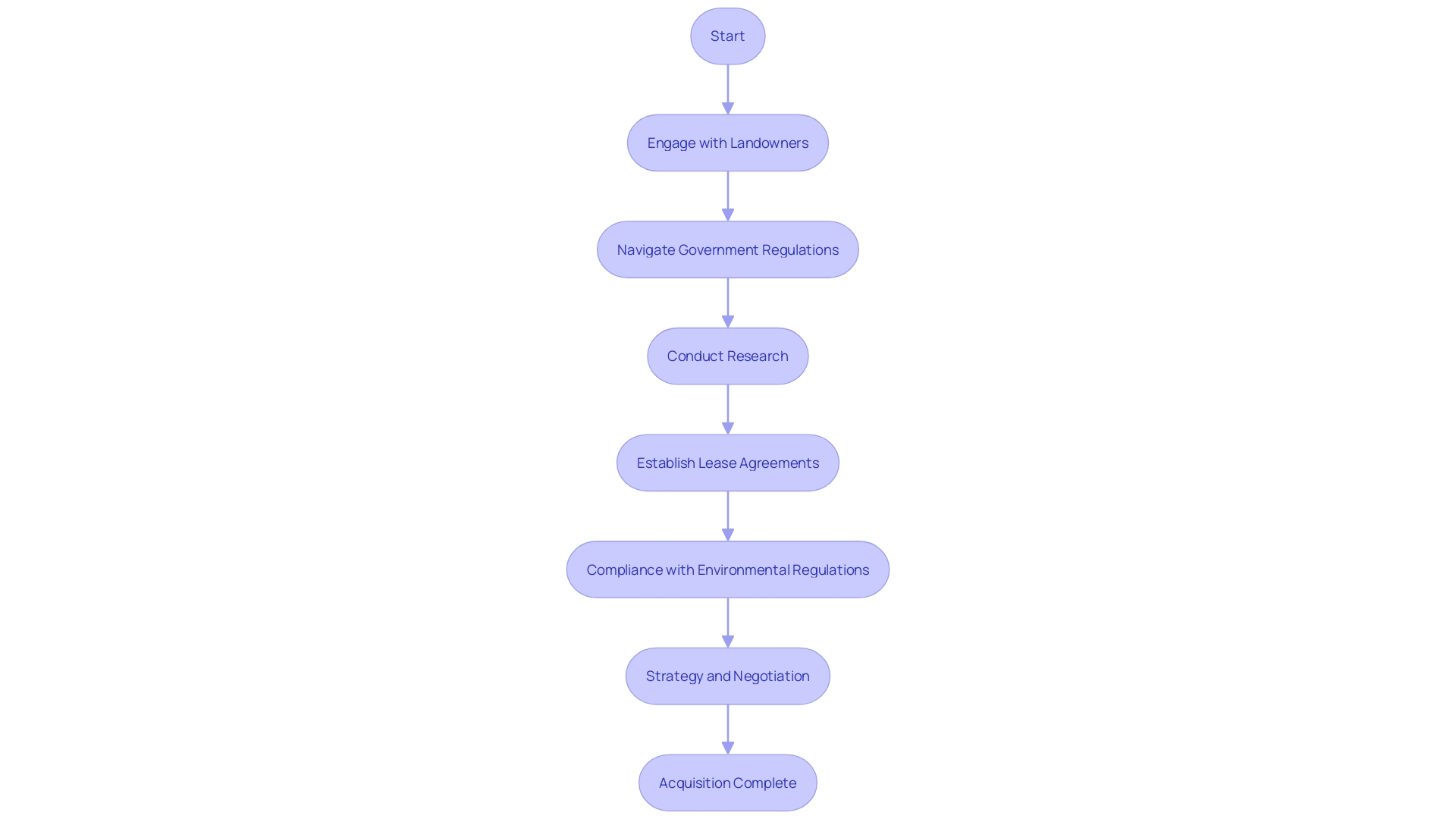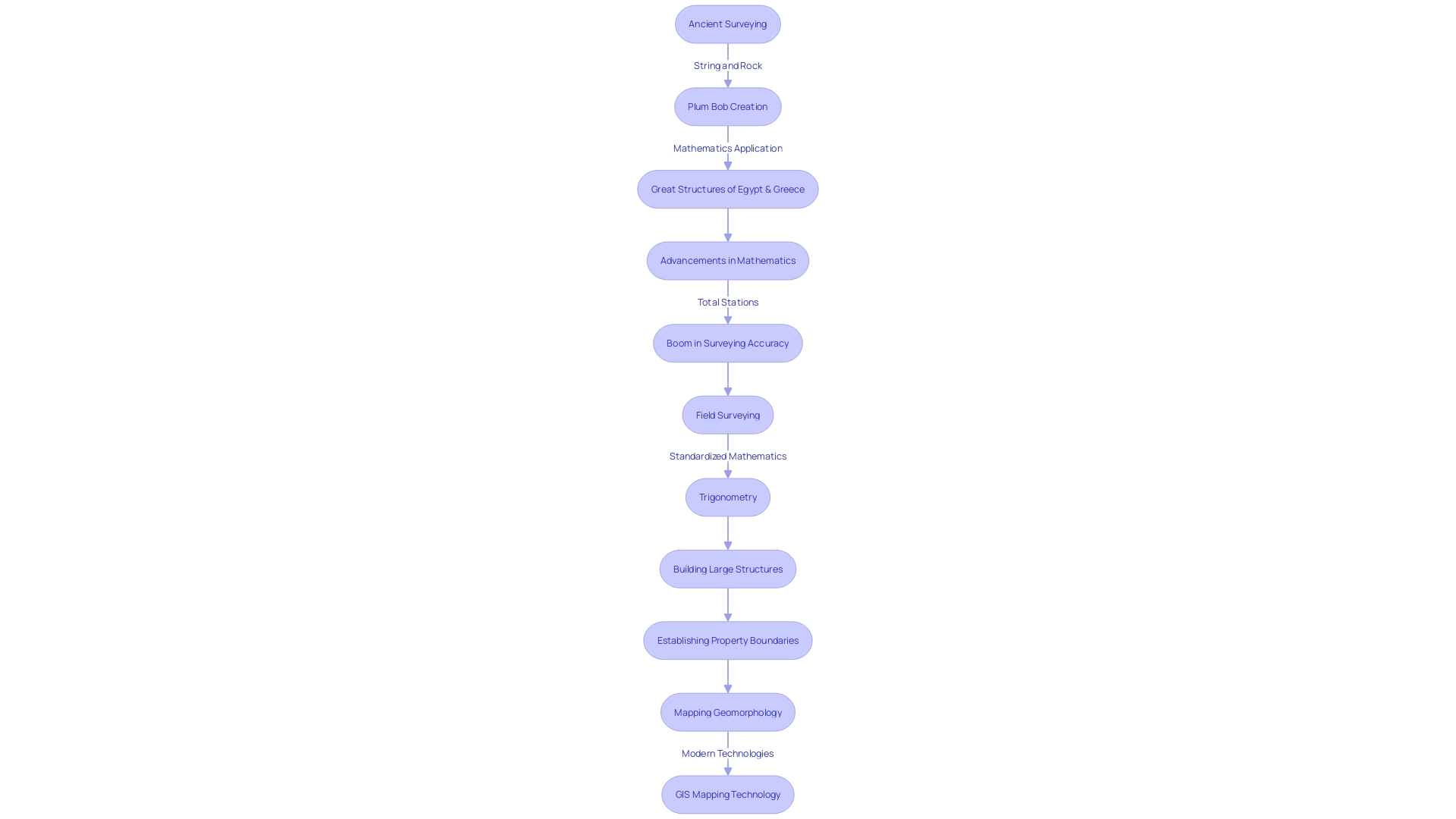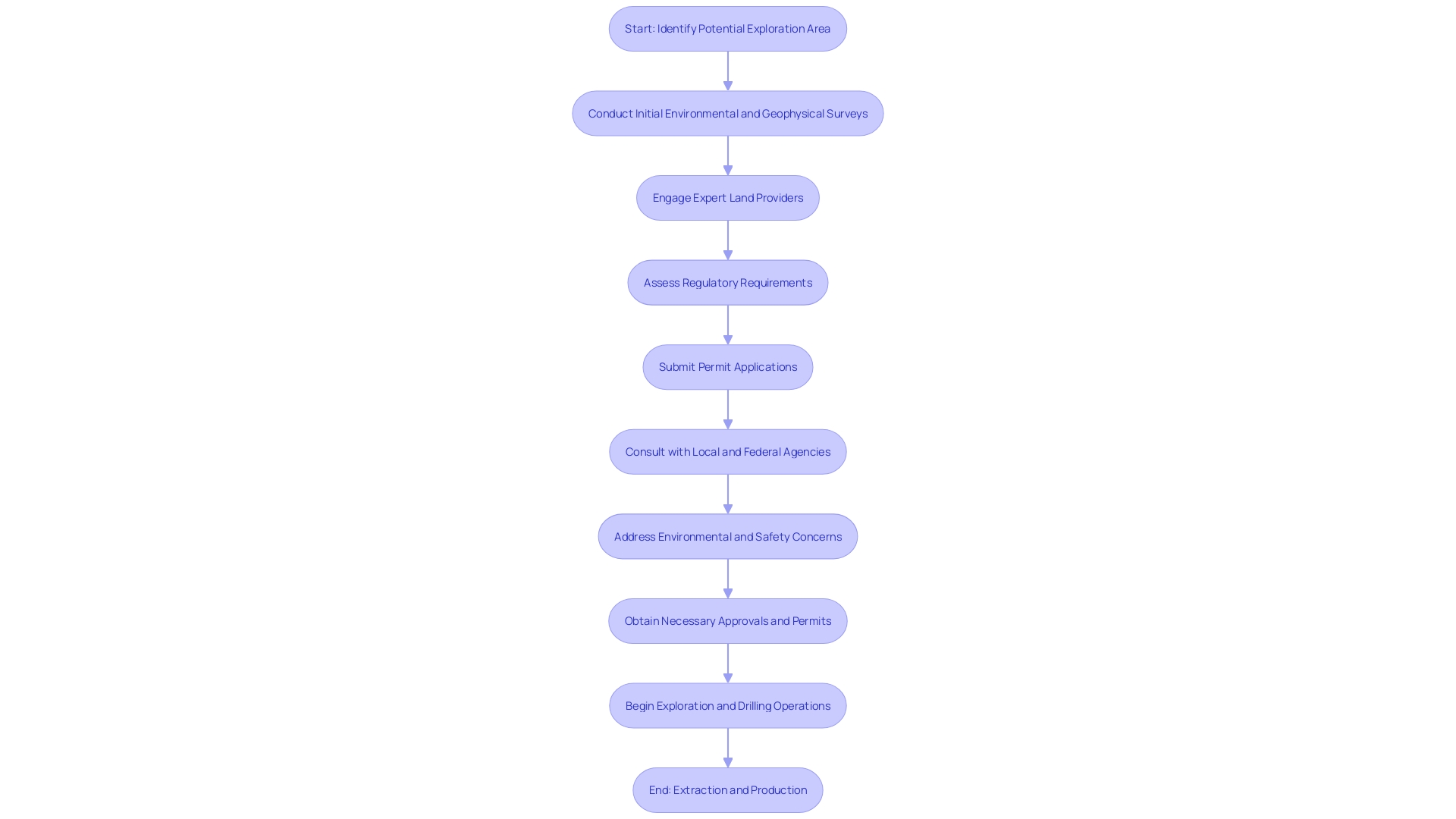Introduction
In the world of oil and gas exploration, land services are crucial for acquiring, managing, and utilizing land in compliance with legal and regulatory requirements. These specialized services help companies navigate the complex landscape of environmental responsibility and community health impacts. From addressing liability concerns to fostering environmental safeguards, land service professionals play a vital role in mitigating risks and promoting responsible practices.
This article explores the different aspects of land services, including land acquisition, title research, GIS mapping and data processing, and permitting and regulatory compliance. By delving into these topics, we gain a comprehensive understanding of the indispensable expertise provided by land service professionals in the oil and gas industry.
Services Offered
In Lafayette, LA, the provision of services related to property plays a crucial role for the oil and gas industry, particularly in regards to the exploration and production of resources. These specific offerings offer crucial assistance for businesses that require to obtain, handle, and efficiently utilize property, guaranteeing that they adhere to the complex network of legal and regulatory prerequisites. For instance, a recent lawsuit filed in Adams County, Colorado, highlights the liability issues surrounding the abandonment of wells. Companies are legally bound to clean up their wells, but if they fail to do so, the responsibility falls to the government, becoming a burden on taxpayers. With over 295,000 tons of methane—a potent greenhouse gas—emitted from abandoned wells in 2021, the urgency to manage these sites responsibly is clear. Furthermore, the impact of methane on climate change, contributing to up to 30% of current human-induced global warming, underscores the environmental stakes at play. Working together with experienced providers in the field enables oil and gas companies to reduce these risks while following environmental safeguards. Recent developments, such as the Louisiana Department of Natural Resources' new rule aimed at reducing the number of abandoned oil and gas wells, reflect the evolving terrain and the vital need for expertise in managing property assets. Approximately 17,000 non-productive wells are registered in Louisiana alone, posing potential environmental and health risks, particularly to lower-income and minority communities who live near these sites. As the industry maneuvers through these challenges, including the financial stability and value assessment of entities like LBRT—a Colorado-based fracking service company—strategic partnerships with service professionals become increasingly indispensable. These partnerships not only address legal and liability concerns but also contribute to the broader narrative of environmental responsibility and community health impacts.

Land Acquisition
In the realm of oil and gas exploration, acquiring the appropriate territory is a crucial step. It's a complex dance of negotiation and strategy, where acquisition specialists are the choreographers. They engage not just with landowners but also navigate the intricacies of government regulations and stakeholder interests. Their goal is to establish lease agreements that grant access to develop these valuable resources, all while adhering to the intricate web of local laws.
The process is not without its hurdles. Environmental policies such as the National Environmental Policy Act (NEPA) and its state equivalents can introduce significant delays, stretching project timelines by years and escalating compliance costs. However, these laws serve a critical purpose, ensuring developments meet high environmental standards.
Case studies, such as the acquisition of Akiya properties in Japan, exemplify the dedication and extensive research required to pinpoint properties that fulfill specific client criteria. This meticulous approach is mirrored in the oil and gas industry, where understanding the client's needs is just as crucial.
Recent news highlights the importance of strategic asset management, with governments globally reviewing their oil and gas portfolios. For instance, the Government of Newfoundland and Labrador is currently in the third phase of assessing its offshore oil and gas interests, a move that underscores the industry's evolving landscape and the value these assets hold on the global stage.
Amidst this backdrop, access to comprehensive market data and expert analysis is indispensable. As reported by Reuters, the oil and gas sector is supported by a wealth of information that informs decision-making processes. This includes not only real-time market data but also insights from industry experts that help navigate the complexities of the market.
The importance of open and available data in land-related activities is crucial. It supports sustainable socio-economic and environmental management and, when used effectively, can empower even the most vulnerable stakeholders. By ensuring that a wide variety of users have the means to utilize this data, we can foster a more equitable landscape in property acquisition and development.

Title Research
Uncovering any obstacles or conditions tied to parcels of property is a primary function within the realm of exploration land services. It's a meticulous process that dissects the historical lineage and juridical complexion of the property, ensuring that the oil and gas companies are well-informed prior to finalizing property acquisitions. This entails a deep dive into the archives to unearth any liens, burdens, or discordant claims, thereby safeguarding the ventures of these companies against unforeseen legal entanglements.
With an ever-increasing focus on cybersecurity and the threat of wire fraud, meticulous attention to detail in title research is more crucial than ever. The American Land Title Association (ALTA) has been at the forefront, equipping members with the necessary resources to counteract such threats. In a digital age where title professionals allocate substantial time and resources to safeguard property rights, the integration of Artificial Intelligence (AI) within these operations has been pivotal in enhancing efficiency and productivity.
Furthermore, the importance of title research is echoed through the insights of seasoned REALTOR® professionals, who advocate for property surveys as an indispensable part of the homeownership process. A property survey, carried out by a licensed surveyor, provides an accurate measurement of a property's boundaries and features, offering invaluable data about the dimensions, configuration, and infrastructural layout of the area.
Amidst the evolving landscape of the renewable energy sector, as evidenced by Northern Ireland's significant strides, the pertinence of robust title research remains undiminished, ensuring that legal frameworks and stakeholder engagement are thoroughly vetted, much like the methodologies outlined in handbooks for renewable energy developers. This comprehensive approach to title research underscores its fundamental role in facilitating informed decision-making and fostering the sustainable development of energy resources.

GIS Mapping and Data Processing
By utilizing Geographic Information System (GIS) technology, the field of exploration has undergone significant transformation from the days when simple tools like strings and rocks were used. Modern GIS mapping creates intricate visualizations of parcels, infrastructure, and potential drilling sites with high precision. The evolution of surveying from ancient techniques to current advanced GIS applications has been driven by the demand for accurate and accessible spatial data. In the oil and gas industry, the collection, organization, and analysis of diverse data types through data processing support critical decision-making processes. The capability of GIS mapping and data processing to integrate various information layers makes these tools indispensable. They not only enhance the efficiency of identifying viable exploration sites but also help in assessing environmental factors, as underscored by projects that use Landsat data for informed water security decisions worldwide. This integration of technology ensures that oil and gas companies can navigate the complexities of exploration with a comprehensive understanding of both opportunities and risks.

Permitting and Regulatory Compliance
In the domain of exploration, oil and gas companies are navigating an increasingly intricate matrix of environmental, safety, and operational regulations. The intricate process of obtaining permits is pivotal to the exploration and production of energy resources. Expert land providers play a crucial role in guiding these companies through this labyrinth, securing all the necessary permits and approvals. Their role extends to aiding compliance with a myriad of regulatory demands, a critical function that helps minimize the risk of penalties and legal complications.
Through a proactive approach, these providers offer a buffer against the reputational risks and economic trade-offs that can arise in the energy sector, much like the safety standards in place within the utilities in regions prone to catastrophic wildfires. As the energy industry evolves, with discussions around technologies like carbon capture and the movement towards emissions-free buildings in the EU, the regulatory landscape becomes even more intricate.
Land service providers, therefore, must stay abreast of the shifting sands of regulatory frameworks and industry news, such as the recent developments in wind energy and the Biden Administration's focus on energy efficiency. By doing so, they can offer oil and gas companies the highest quality data and insights, delivered through interactive mapping interfaces and integrated analytics, ensuring that these companies can maximize opportunities while remaining within the bounds of strict compliance requirements.

Conclusion
In conclusion, land services are vital in the oil and gas industry, ensuring compliance with legal and regulatory requirements and promoting responsible practices. Land acquisition specialists secure the right land while adhering to environmental standards. Title research safeguards against legal entanglements, and GIS mapping and data processing provide valuable insights for decision-making.
Expert land service providers aid in permitting and regulatory compliance, minimizing risks and ensuring adherence to requirements. Collaborating with these professionals is essential for sustainable and responsible operations in the industry.




